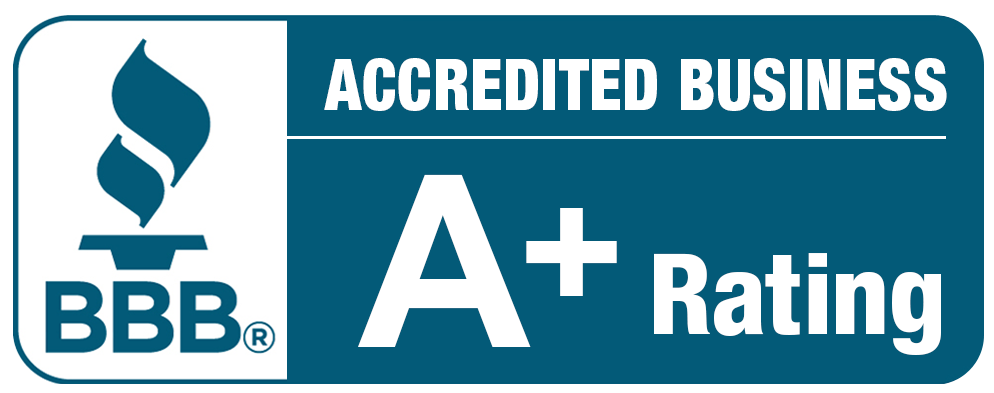Anyone who has applied for a loan – whether as a small business or an individual – has likely heard of the term ‘underwriter.’ That said, although the term is quite common, what the underwriting process actually entails is widely misunderstood. As a result, many companies and owners are not aware of what could either qualify or disqualify their loan applications – particularly when applying for traditional small business financing.
Below we will provide you with everything you need to know regarding the small business loan underwriting process, including what information underwriters will use and want to confirm from companies like yours. Additionally, we’ll review how National Credit Partners identifies debt relief and modification options to help small businesses like yours succeed now and qualify for traditional financing in the future.
An underwriter is a financial expert tasked with reviewing and assessing a small business’s financial condition in respect to a loan application. The underwriter must determine how much of a risk the lender will take on by issuing a loan to the small business.
In addition to helping the lender determine whether or not you’ll be approved for a loan, the underwriter works with the applicant to make sure that all paperwork is submitted properly.
Underwriters will look at a variety of information related to your small business’s overall financial condition. Some of the key questions asked by underwriters when considering a small business loan include:
These three basic questions are what small business loan underwriters are typically looking to answer – with assurance – before approving traditional financing. If the underwriter is confident that the answer to all of those questions is an affirmative “yes,” they will likely approve your loan. If there’s any uncertainty as to the answer to any of the above listed questions, the underwriter will likely do some additional due diligence to help better determine whether or not you are a good candidate for a loan.
By knowing what questions an underwriter is seeking to answer about your small business, you can better prepare your loan application before submitting for the review process.
Fill the form to request a free Business Debt Consultation Now!
By clicking “Continue” above, I understand and agree to the following terms and conditions:
While every underwriter may consider various criteria (and weigh one criterion more heavily than another), the majority of lenders simply want to know that your small business will make payments on-time. Some of the key information reviewed by underwriters during the application process includes:
This essentially comes down to basic math, and if a small business is not generating enough revenue to make consistent payments, a loan will more than likely be denied. Lenders will often utilize what’s known as a ‘revenue to loan ratio’ in an effort to determine the exact amount that they will actually lend in the event of an application approval. While this ratio can vary on a case-by-case or lender-by-lender basis, it’s typically assumed that a small business should not anticipate being approved for a loan that is any sum above 10% of your annual revenue. When analyzing your small business’s monthly gross revenue, that factor may actually fall somewhere between 50% and 100%. Furthermore, the final amount approved in a small business loan will likely hinge on the amounts (and current statuses) of any additional business loans or lines of credit.
While many small business owners do not realize this fact, an individual’s personal credit score can actually have a major impact on whether or not a company loan is approved. An underwriter will review your credit history and search for ‘red flags,’ such as late payments, bankruptcies, number of lines of credit, overuse of credit, and more. The small business owner’s own personal dedication to repaying creditors can be viewed as an indication of whether or not the individual’s business will also pay on-time. Accordingly, most traditional lenders will look for a minimum credit score of 620 when applying for a conventional loan (by comparison, if you apply for an FHA mortgage loan, the minimum credit score is 580). But the vast majority of traditional lenders are typically looking to see a credit score that is 700 or above. In essence, the lower a small business’s owner’s personal credit score, the more expensive the financing terms of the loan.
While every lender doesn’t require collateral from potential debtors, the majority of banks ask for some form (and the SBA has such a requirement). While the SBA won’t always require that a small business loan is ‘fully collateralized,’ they will more than likely require that any and all collateral you have “available” is provided. Furthermore, a number of online lenders will apply a general lien on business assets (although some merchant cash advance providers will not). A personal guarantee on small business loans is something that the vast majority of lenders – even traditional lenders such as local or community banks – will likely require.
As a small business owner, it’s important to realize that underwriters may want to know how much money you have personally invested in your business. For example, underwriters may look at whether or not you assisted (financially speaking) with things like startup costs, etc. This could be viewed as an indication of your personal commitment to the success of the company. If you, as a small business owner, can demonstrate through past action that you have what’s commonly referred to as “skin in the game,” or “something to lose” if the business fails, underwriters might view your application more sympathetically.
You may be wondering what, exactly, a debt service coverage ratio entails. Basically, it’s a calculation of a business’s income as well the total amount of financing. You can calculate this ratio by dividing your business income by your total annual debt service costs (which equals all the principal and interest you pay annually). As a general rule, small businesses with a debt service coverage ratio of below 1.25 have a difficult time securing traditional financing.
This ratio helps underwriters anticipate whether or not you have enough assets to cover a loan in the event of a default. If there is NO collateral requirement for your specific loan, this ratio becomes of particular importance to underwriters. By analyzing your business’s debt-to-asset ratio, the underwriter can review if you have enough assets – whether equipment, property, or another form – to potentially liquidate and cover the loan in the event that regular payments are not being made. As a general rule, underwriters prefer to see a ratio of more than 1:1 (meaning more assets when compared to the total amount of the loan you are borrowing).
Note that this only applies if your loan requires collateral. In such cases, said collateral should at least be equal to the amount you are borrowing. But more often than not, underwriters will prefer to see that your collateral is worth at least 20% more than the amount you wish to borrow. It’s why lenders typically request a 20% down payment for things like cars or homes – and that same ratio can apply when seeking a small business loan.
Your company or personal assets (total net worth) are another major consideration reviewed by underwriters throughout the small business loan application process. In an effort to ensure that you can actually afford to repay the loan every month, underwriters will hope to see a 1:1 ratio of financial assets and liabilities when compared to the total amount of the loan.
While not a hard and fast rule, some underwriters may examine other (or alternative) sources of income to help better determine whether or not you will repay a loan. Such alternative sources of income might include a guarantor, insurance policies, or an additional income stream from a separate job.
How Long Does Underwriting Take?
This is a difficult to question to answer, as it depends largely on your small business’s unique financial situation and the lender you’ve chosen. Underwriting is a process that varies on a case-by-case basis. Ultimately, the sooner an underwriter can answer the questions outlined above (with confidence), the sooner you’ll be approved for your small business loan.
Accordingly, ensuring all documentation and any relevant information is provided upfront is strongly recommended. This can help reduce the overall amount of time it takes for a company to be approved for a small business loan.
How Can National Credit Partners Help Your Small Business Become Eligible for Traditional Financing?
At National Credit Partners, we help small businesses like yours identify debt relief and debt modification solutions to get back on track as soon as possible. If you’re struggling to obtain traditional financing, we can identify customized options created specifically to your small business’s needs which allow for immediate cash flow, but also get your company on the path towards traditional financing approval in the near future.
Unlike most other debt relief companies, National Credit Partners offers unique advantages to help your business improve its financial condition. For example:
We’ve successfully helped small businesses facing significant financial challenges – including defaults, collections, and legal actions – achieve permanent debt relief solutions. In fact, many of our distressed business clients were able to qualify for traditional financing (like SBA or term loans) after graduating our program.
With our years of experience and proven results, the National Credit Partners team of dedicated professionals is here to help your business find a debt relief solution that is tailored to directly meet your needs, challenges, and future goals.
Call us today at (888) 766-3998 or fill out the contact form below to arrange for a free and no obligation consultation with one of our skilled team members. We’ll review your company’s specific circumstances thoroughly and discreetly and utilize our decades of experience and proven results to help you achieve your financial goals.
Don’t settle for an unproven debt relief professional that could potentially make your business’s situation worse through inexperience. Choose National Credit Partners, the company offering direct, strong, and proven relationships established with countless creditors. We’ve helped companies achieve the financial solutions they need to make fresh starts, and can do the same for your business by identifying the personalized debt relief option that is right for you.
As your premier and Better Business Bureau A+ rated debt consolidation company, National Credit Partners is comprised of professionals specializing in helping small and medium-sized businesses like yours achieve the debt relief they need.
Complete the form below and one of our team members will reach out to you immediately.
If you are one of the many thousands of companies struggling with high interest business loans, call us today for a free consultation. Just taking the first step in talking to an expert can start relieving stress. And once you talk to a debt help specialist, you will see that there is hope.

An A+ rating represents BBB's high degree of confidence that the business is operating in a trustworthy manner and will make a good faith effort to resolve any customer concerns filed with the BBB.
